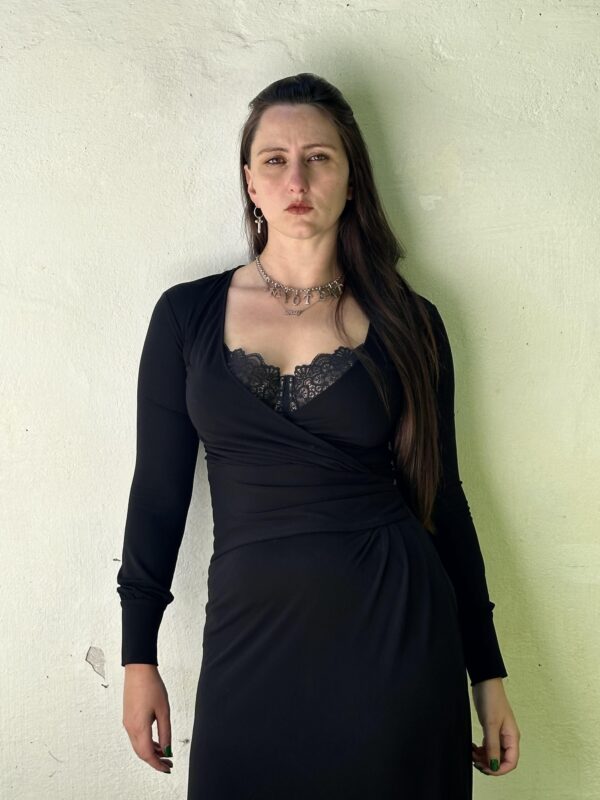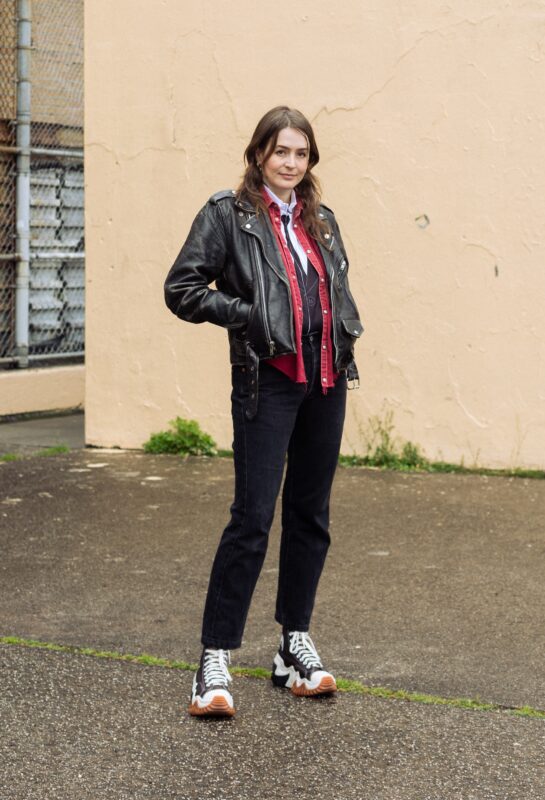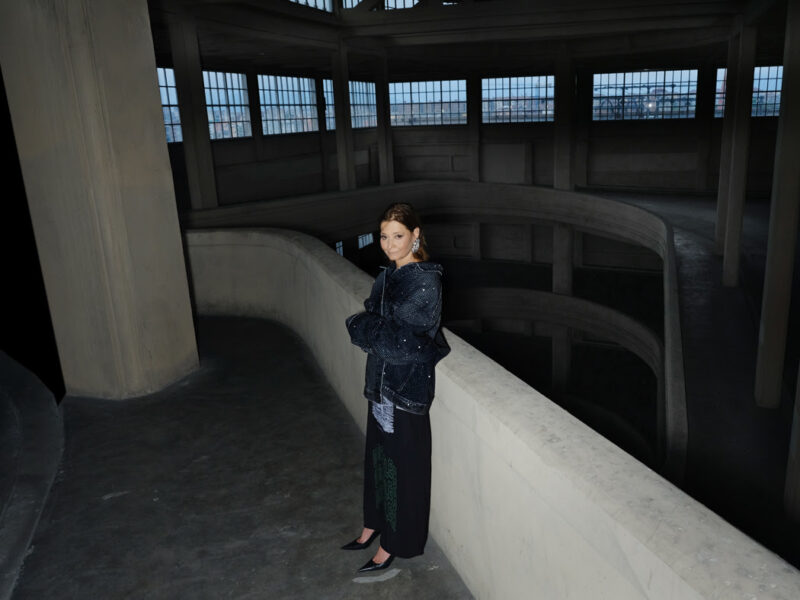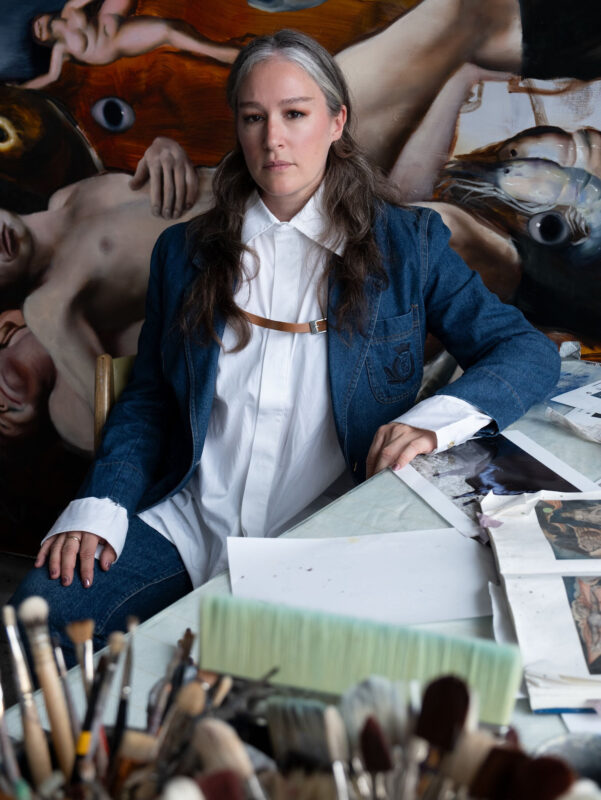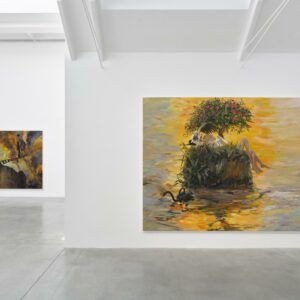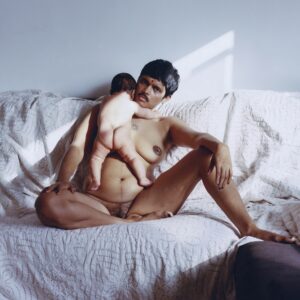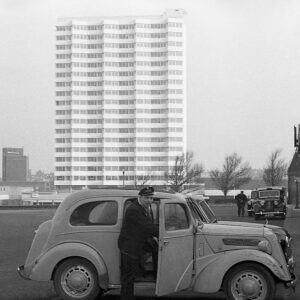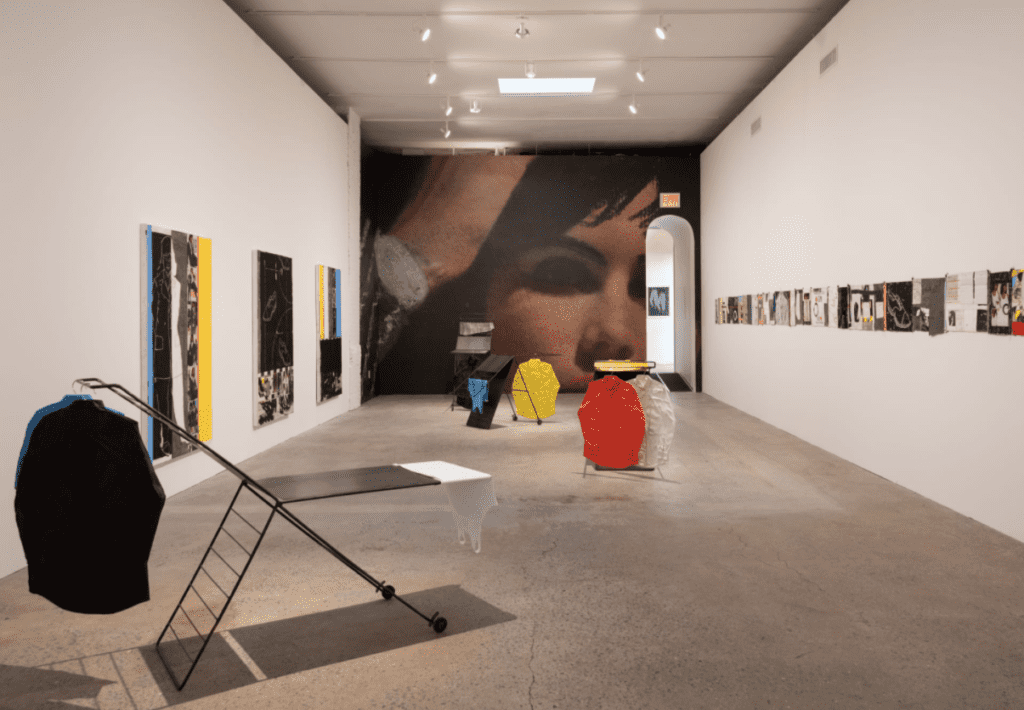
In his second solo show Dishwater Holds No Images at Company Gallery, Troy Montes Michie builds on his interventionist collage practice with a series of work that weaves in the subcultural figure of ‘La Pachuca.’ This body of work is a development of the artist’s investigation into the ‘zoot suit’ — a countercultural fashion statement from the 1930s that can be traced to swing musician Cab Calloway and the jazz scenes of Harlem, but was adopted by Chicanos and even sampled by the Japanese Americans incarcerated in U.S. internment camps of the 1940s. In a marked turn to the feminine, Montes Michie locates the subversive expression against gender norms in the zoot suit’s characteristically draped and oversized quality among the era’s working-class Mexican-American women styled with bouffant hairstyles and dark lipstick.
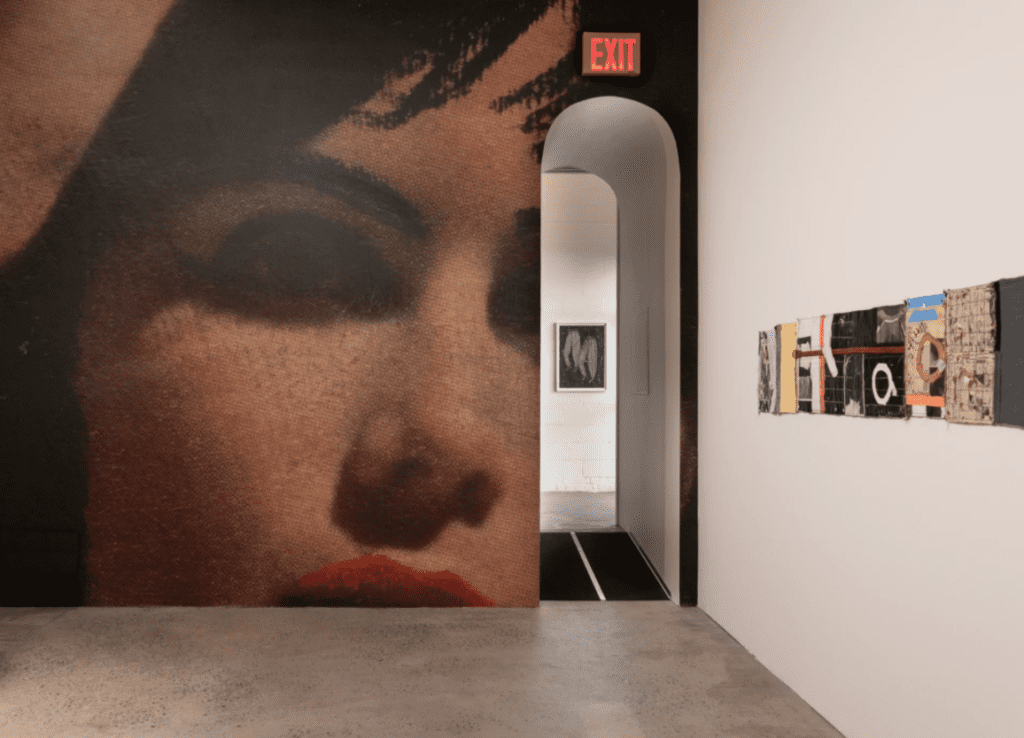
Most depictions of women in the work are manipulated images of white models from ads in a 1970s Montgomery Ward catalog — the now bankrupt retail store once prevalent in many Texas border-towns. He’s browned their skin-tone and painted on coiffed hairstyles, billowing slacks, and the fingertip coats. He interrupts his works’ layered surfaces by sewing seams into paper that’s been woven, coated with glue and paint, and marked with lines of tailor’s chalk. Catherine S. Ramirez in her book The Woman in the Zoot Suit says that the pachuca’s masculine style and tough attitude was considered an affront to femininity and Americanism. “By appearing to betray gender norms during wartime, pachucas, many of whom were the bilingual and bicultural children of immigrants, seemed to betray the nation as well.” One can begin to see the inversion of value in this context as Montes Michie’s projects the pachuca likeness onto these vintage ads that highlight an idealized version of “American,” feminine beauty.
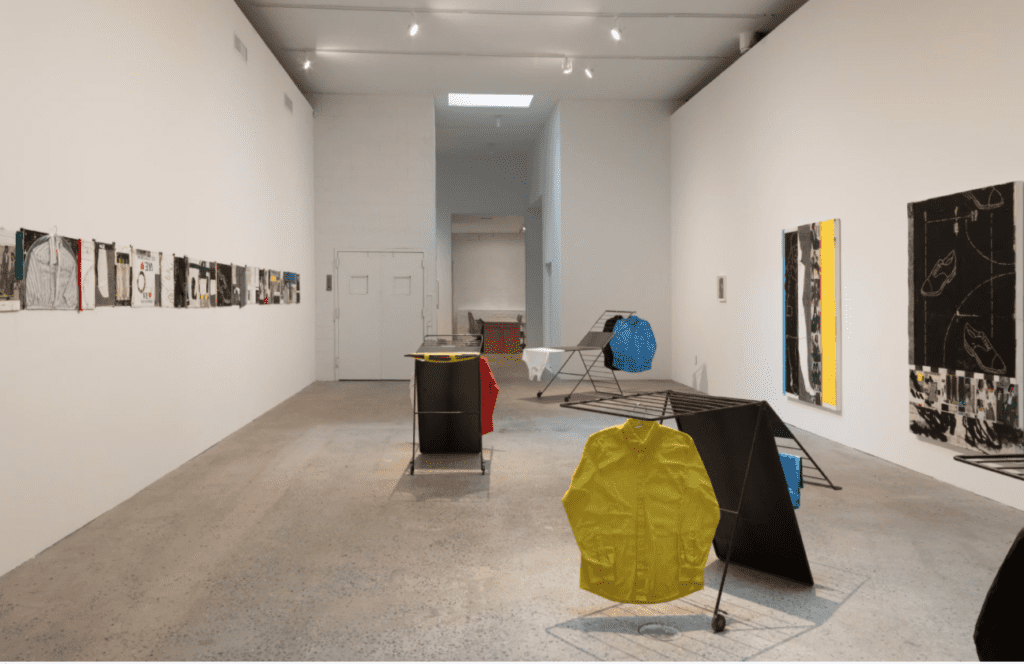
Though the pachuca and zoot suit or ‘el tacuche’ features heavily in the show as a gendered symbol for a spectrum of rebellion within the United States, it’s also a tool in a search for evidence related to the nature of identity. Pieces like diagrams stitch together chaotic points of reference in an effort to decipher a disparate collection of archival remnants. It feels like Montes Michie is chasing a silent ancestor removed, especially with the piece ‘Ramona.’ The outlined image of a Chicana garment worker photographed in a zoot suit in 1943 named Ramona Fonseca becomes a blueprint for our projections. Ramona’s abstracted form is now the baseline pattern from which to be layered, sampled, and inserted into a new narrative.
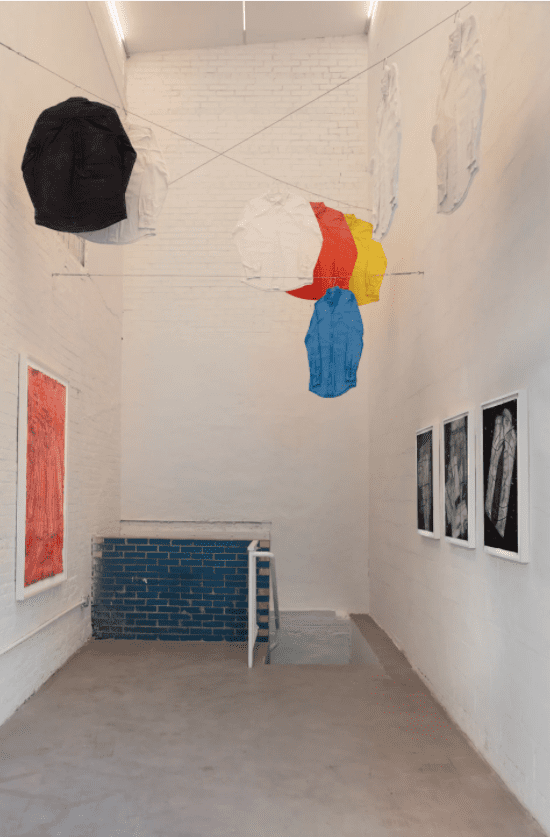
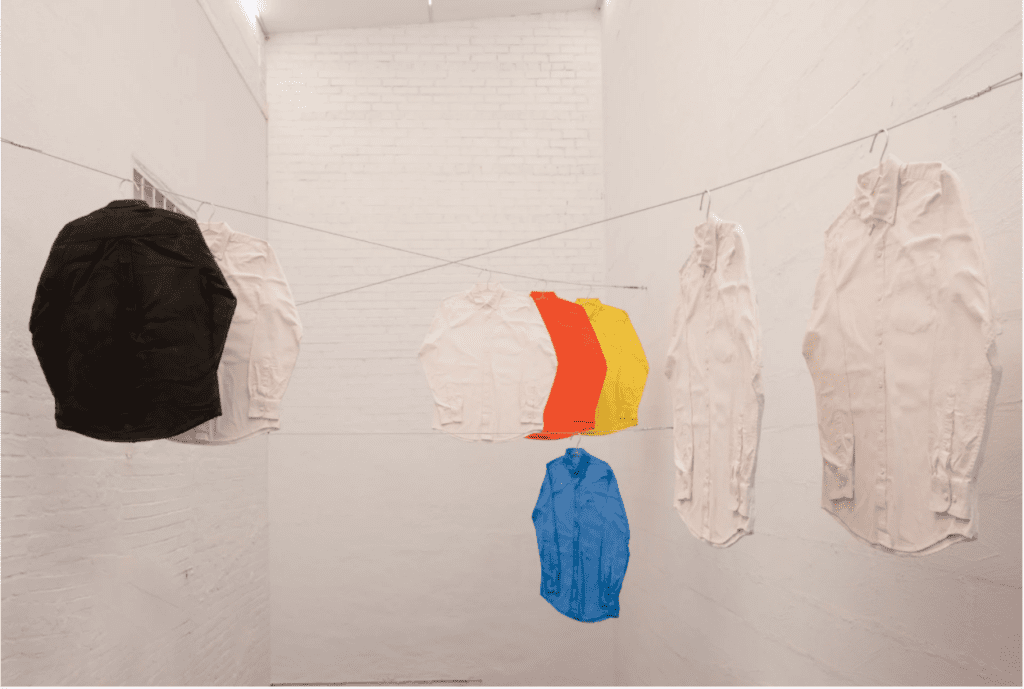
Familiar with his own matriarchal family, Montes Michie draws in this Chicana hard-femme archetype as one that has largely been omitted from official accounts of zoot history. Like with other bodies of his work, the heavy presence of Montes Michie’s hand, positions the artist as the interlocutor into this sidelined history. Text -Barbara Calderón
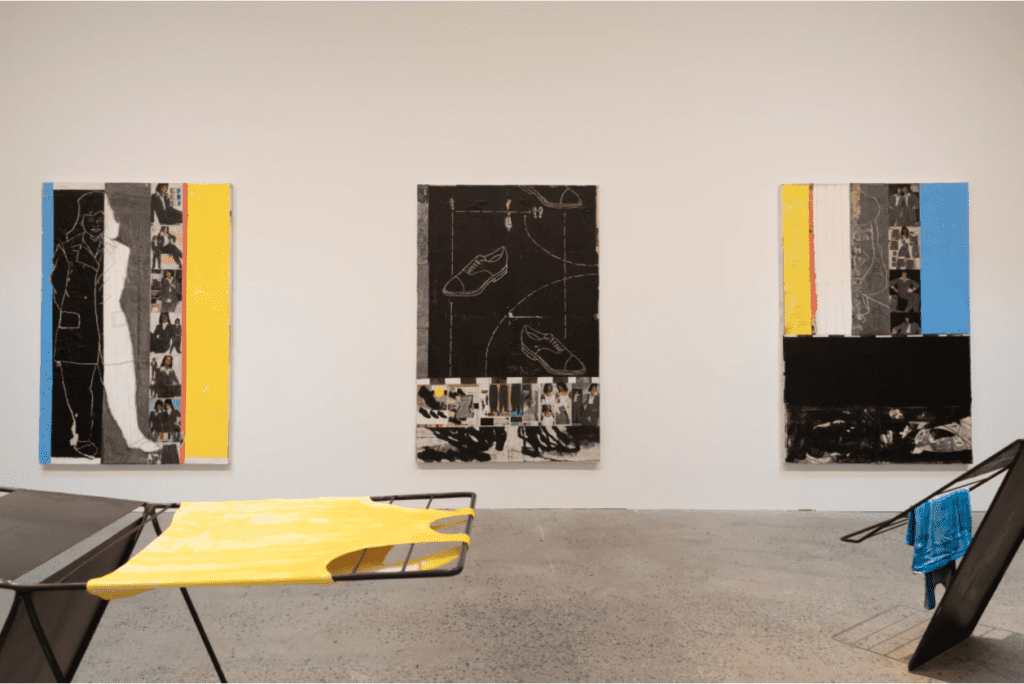
Troy Montes Michie ‘Dishwater Holds No Images’ – April 16th, 2022 COMPANY
About the artist
TROY MONTES MICHIE was born in 1985 in El Paso, TX and currently lives and works in Brooklyn,
NY. His solo exhibition, Rock of Eye, is currently on view at The California African American Museum in
Los Angeles. Other recent exhibitions include those at The Momentary, Arkansas; Philbrook Museum of
Art, Oklahoma; Kunsthal KAdE, Netherlands; The MAC Belfast, Ireland; The Shed, New York; Contemporary Art Museum, Houston; New Museum, New York; The Artist’s Institute, New York; Studio Museum in Harlem, New York and Leslie-Lohman Museum of Gay and Lesbian Art, New York. His work was
featured in the 2019 Whitney Biennial. Awards and residencies include the Amistad/Rivers Artist Research Residency, Recess Art, the Emerging Artist Grant and Skowhegan School of Painting and Sculpture.
